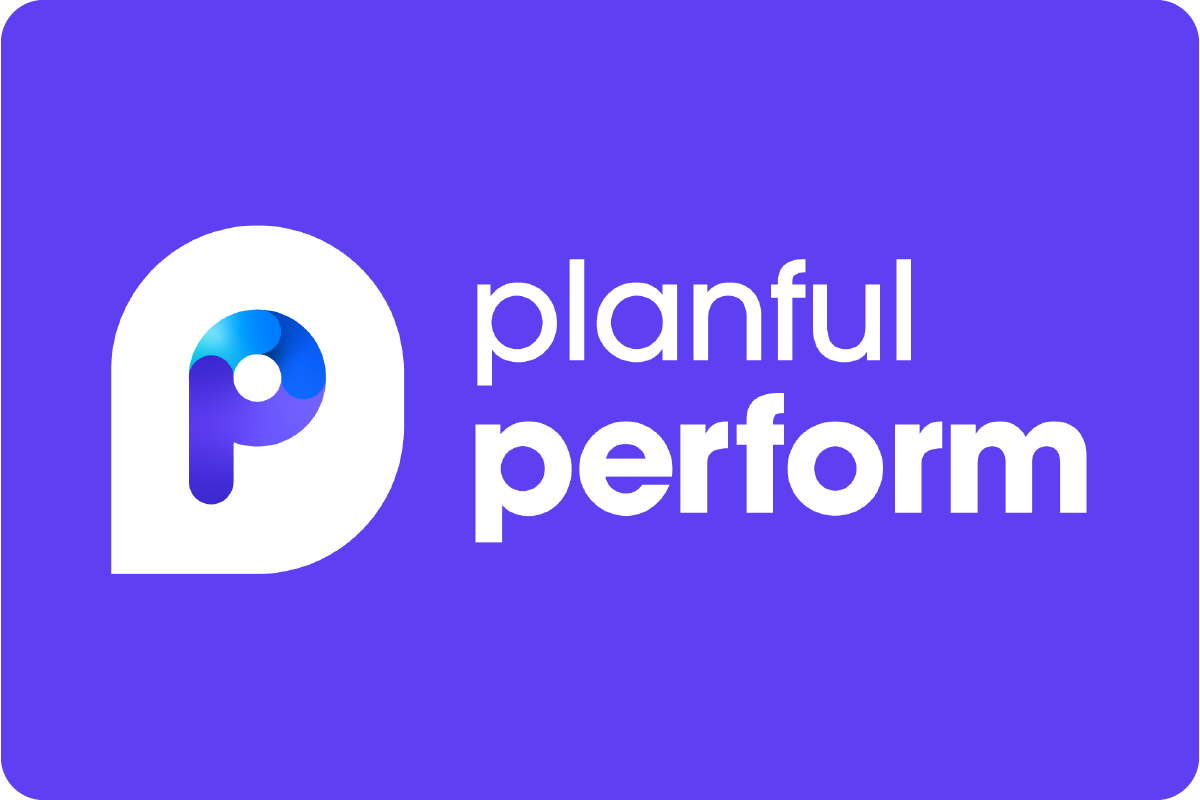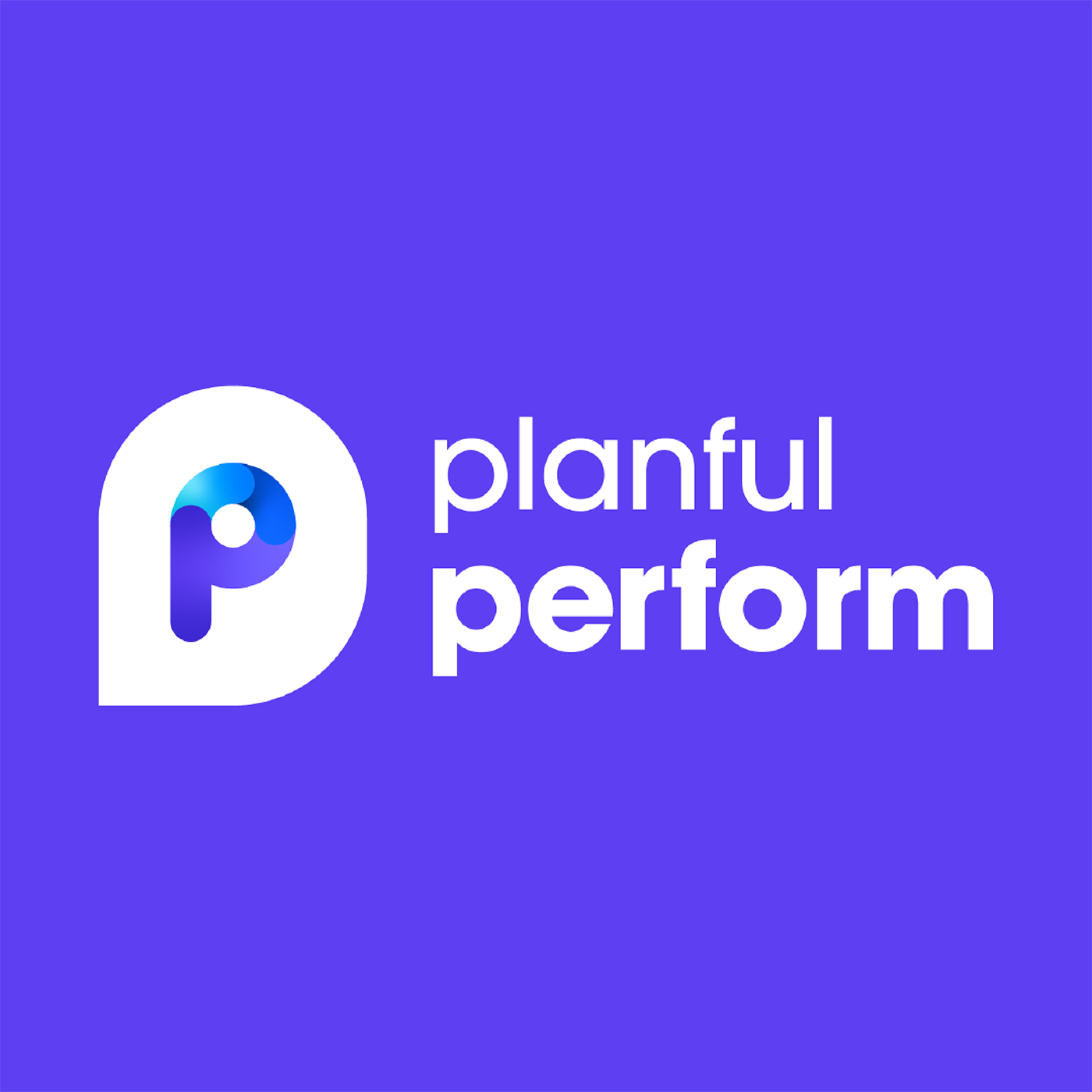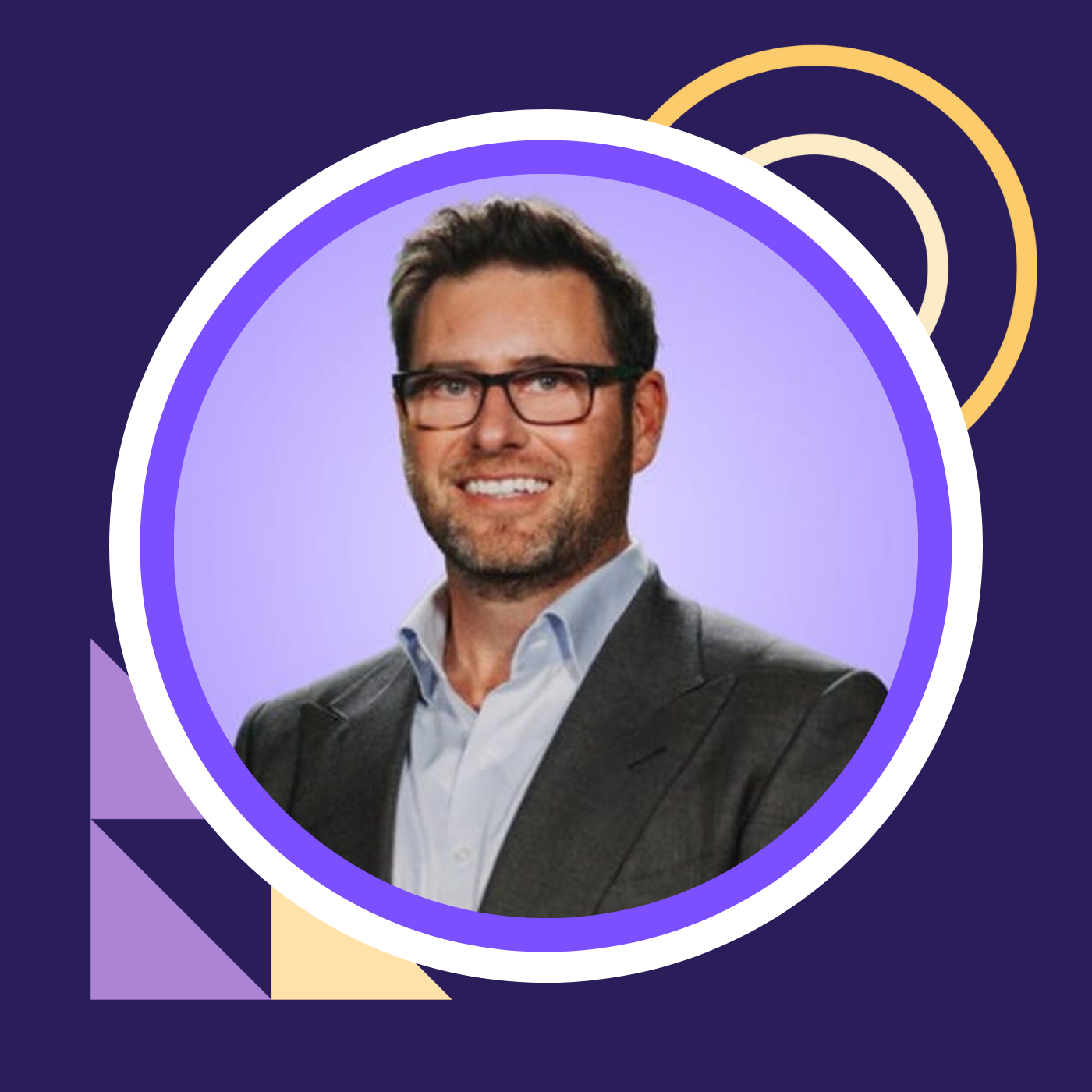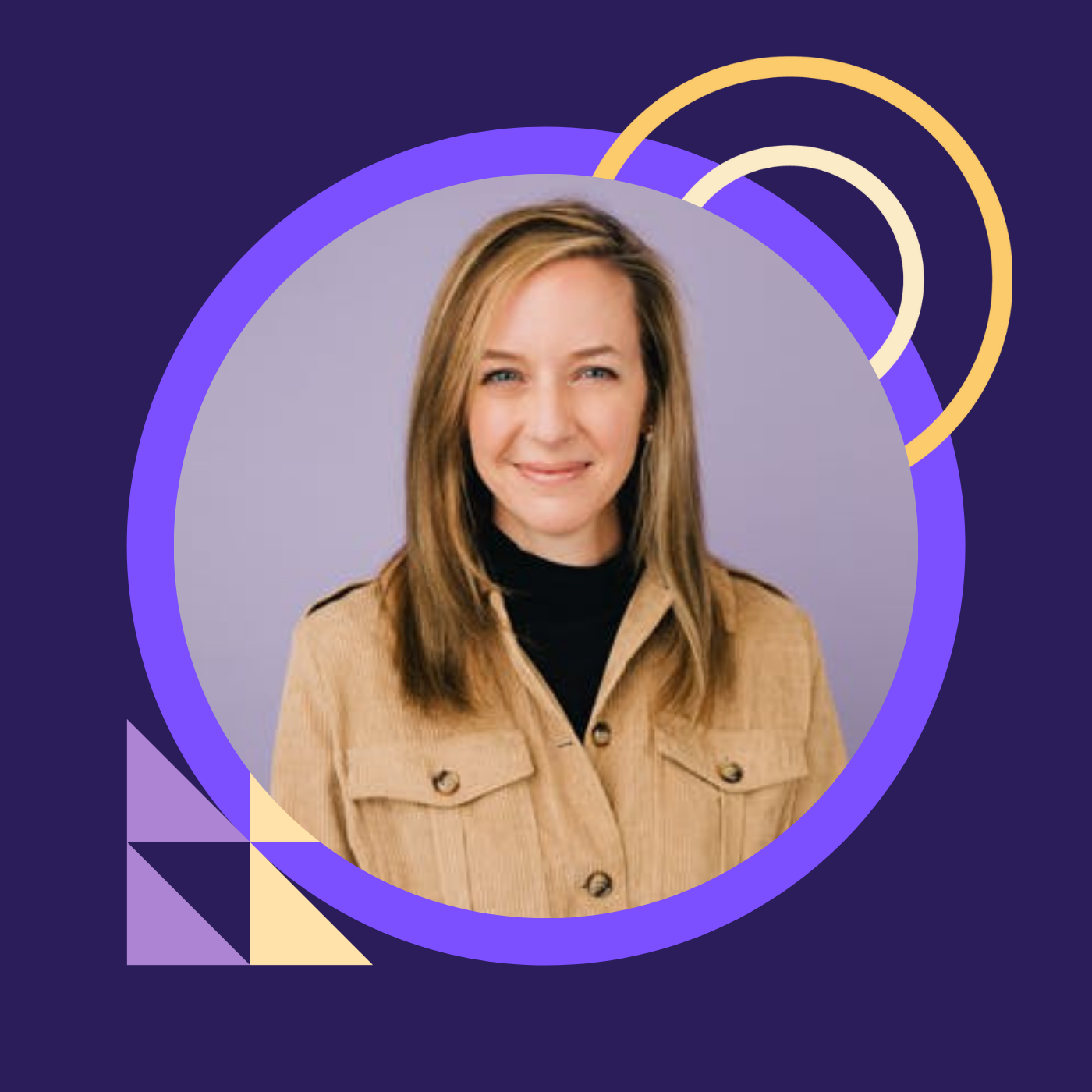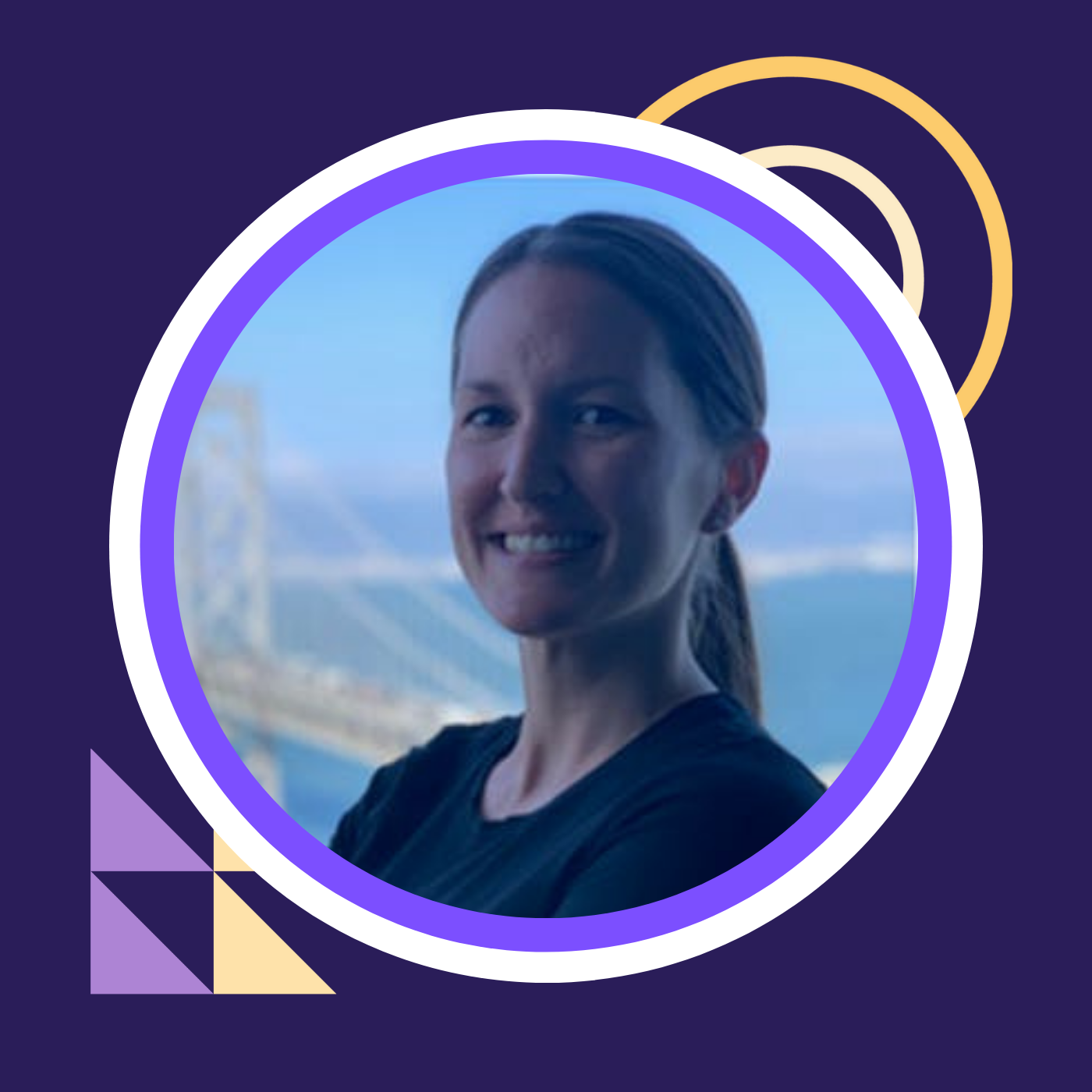Embark: Take Your FP&A from 0-100 Real Quick | Zeke Richardson, Will Fuller & Billy Leigh
- 0.5
- 1
- 1.25
- 1.5
- 1.75
- 2
Billy: I'm Billy Leigh and I lead the finance transformation practice at Embark. So very brief background around the buzzword of finance transformation is we take organizations from being technically competent, right? What's a technically competent finance organization? Anyone? One answer. Oh, I can do this all day. Cap is reconcile, right? The books are rolled forward. The trial balance balances, right? That's a technically competent finance organization. What we hope to accomplish with our clients is turning them into true business partners, which means they're helping the organization combine operational and financial data to drive decisions instead of cleaning up what's already happened. So I spent four years in the Marine Corps out of high school, five years getting a master's degree in accounting. The worst 13 months of my life in Deloitte's audit practice and realized I was more concerned with the technology that drives business and data analytics than doing accounting. Yeah.
Will: Hey. Will Fuller. I joined Embark this year. I'm managing director on finance transformation practice. Background in public accounting. I'm a CPA, I'm reformed. I've done finance FP&A and accounting consulting now for about a decade.
Zeke: And last but not least, I'm Zeke Richardson. I also am a reform CPA. I joined Embark in 2019, was a lot smaller shop back then. We've grown exponentially. We've had a great time doing it, growing into the Ft space. My background is, in addition to also former auditor, FP& A in industry for rail car manufacturer there in Dallas. Yeah. When I was there, what I really... To Billy's point about these processes that all these companies is very technically sound. The books were closed. Financial reports went out, it was all technically sound. But there was just so many improvements that could be made in the finance department, the processes, the technology. Actually implementing all that stuff we're going to talk about in this presentation.
Billy: So I'm not going to read the agenda to you, you can all read. I hate telling someone what I'm going to tell them and then tell them. So we can just move to the next slide. So, is this you? No...
Zeke: Go for it.
Billy: We've done this before, I swear. Okay. So what we're going to talk about real quick, and we're not going to harp on this too long is that, we're doing all this stuff, we're implementing plan, we're changing your tech act. We're looking at what we can do to get you out of Excel and out of these manual processes, into some kind of integrated system, right? But what this is saying is that 90% of the time, these things don't work. They don't work the way that we think that they're going to work. So on this slide, read if you want, the last one that I want, I want to get 30%, right? That says 30% of stuff actually works. So 70% of what we implement as professionals and as consultants doesn't always work to plan. I mean, there's lot of reasons for that. So the 70% is where we're going to kind of focus right now.
Zeke: And that's McKinsey that only succeeds 30% of the time, not us.
Billy: So...
Zeke: Just wanted to point that out.
Billy: We got one.
Will: So why doesn't this happen? Right? So it's not that we don't have people. It's not, our clients don't have people. It's not like companies don't have people, it's that those people have day jobs, right? You all have day jobs. You all have stuff that you have to get done on a regular basis. And throwing an implementation on top of that, isn't always the most effective use of your time because you have so much other stuff that you need to do. So the people are there. They're smart, they're confident, they can do things. They can optimize their own systems, but they're busy.
Zeke: And tying it into Planful. One of the biggest things we see in implementations is that, let's say you have a company that they want to get on the technology bandwagon, so that first bullet point. They don't have deployable talents. It's really key to get by and upfront on having talent that's available to go in, to really dive in both feet, learn the tool. That's a huge thing that sometimes falls through the cracks. People have day jobs, executives don't have the bandwidth. And maybe it's a legacy company, CFO's been there for a while. He's hanging on to that old Excel, VBA coded thing that was written in 2003. So some of that's hanging on. And then that last bullet ties in there, companies say," Hey, we're all about AI machine learning." And sometimes companies say that, maybe they don't mean as much as they want to, or as much as they should. And Planful is one of those tools that really helps you get in there. And maybe you need to expand your use of Planful, maybe it's something to that. And that's kind of what we're going to talk about here.
Will: So before we jump on, how many of you guys went to your CFO when you're implementing or you're going to implement Planful, and you said," Hey, I want to do this." And your CFO went great, do it. One, two, three. So three people. So the rest of you had to work, right? At your buy- in. You had to convince your CFO that this was a tool that you wanted to put in, right? And now hopefully it's showing dividends. Hopefully it's showing that you paid for something and you're getting more value out of it than you paid for it. It's not that your CFOs don't want you to have a better life, right? As finance professionals, FP& A guys, you want to go home and you want to spend time with your families. You want to do that. It's that your CFOs don't want you to do that, but you have to get them to buy- in. So, that's part of Zeke's point is, it takes buy- in from the whole organization to get something like Planful implemented. It can't just be an idea that somebody has, because it's going to make my life easier. It's always about who else's life can I make easier. Is it going to make my CFO's life easier? And that's exactly what we think Planful does.
Billy: So before we get into this, and you can stay on this slide. Just to get a sense of the room, how many of you are considering a Planful implementation? Okay, great. People are inaudible, how many of you are going through a Planful implementation? Okay. How many of you have a fully implemented Planful system and you're trying to figure out how to take it to the next level? Or what more you get out of it. How many people didn't raise their hand? This guy, love it. Honesty. Awesome. So I am not going to bore you to death with what Planful is or what planful does. What I'm going to introduce to you, what we are going to introduce to you is the concept that we have been alluding to which is that this a, begins and ends with people. I would be famously wealthy if all I had to do was implement technology for an organization. The hard part is getting people to buy into it and use it. Because if they don't buy into it or use it, meaning they feel like it was forced down their throat, or it may take their job away, we're going to automate your job away. Or they just don't understand it. What do people end up doing? They do it in Excel. Woo. So, that coupled with this idea that in a typical organization, we solve problems in one of two ways. Those two ways are to cram them into very rigid, but very powerful systems. ERPs, CRMs, operational systems, and these systems are great, but they're necessary evil. They don't make dynamic left and right turns as the business changes and grows. Anyone ever experience an ERP implementation? Anyone solve any problems with an ERP implementation in two weeks? No. An ERP answers the same questions over and over again in an automated, meaning it works as it's intended to behind the system without a ton of manual intervention, and in an auditable way. Once data goes into our ERP, it's our database of journal entries, our system of record and we trust it, right? That's where information is captured. How else do we solve problems in organizations? Microsoft Excel. There's a theme here. Anyone know how old Microsoft Excel is? Anyone want to guess how old I am? Anyone know what year Back to the Future came out? 1986. Microsoft Excel was released on Mac first in 1985. Okay. Oh yeah, you said 1985. And then it was released on Windows later in 1986, because it was just easier to release on Apple at that time. MS- DOS was still prevalent and Lotus 1- 2- 3, no one cares. I'm a nerd. But Microsoft Excel is amazing. Why is it amazing? A, it's incredibly dynamic. You can do almost anything you want to a Microsoft Excel. It has a ton of staying power. Microsoft Excel is not going anywhere anytime soon. And third, and you probably all don't realize this, but it's your wuby. I have a two- year- old daughter and she carries a white tiger everywhere with her. Why? It makes her feel safe. She sleeps with it at night and she knows tiger's going to be there when she wakes up. And a lot of you think about Microsoft Excel the same way and I know I did. I was very good at Microsoft Excel and I prided myself on it because after having a master's degree in accounting, I still had a sticky note under my keyboard that told me how debits and credits impacted different financial statements. I was, to say the least, not a very good accountant. But I excelled relative to my peers, pun intended, because I knew Microsoft Excel better than anyone. And I could write VBA Macros. So I could automate my job. So I could do two people's job, I could do three people's job unless they inserted a column into a carefully curated workbook and then my Macro shut down. But that's a story for a different time. So if your typical organization forces problems into these incredibly rigid, but incredibly powerful. Or these incredibly not powerful, anyone ever save a workbook every 15 seconds out of fear? You've got a little PTSD there, or it crashes. Anyone ever actually thrown a laptop against a wall? Maybe not, but you've all considered it because Excel is just processing and you're praying you didn't lose two hours of work. What's missing there is this middle layer. So if we look at this problem in practice, when we think about how we make decisions in an organization, we take data from the market or eternally created from systems. And we use that to drive decisions. Anyone think there's any part of business that isn't doing exactly that? Not even you? Because that's the truth. Everything in between is the minutia. That speed is the speed of business. It's the speed at which you can react to the market. It's the speed at which you can make decisions. Yes. No. Buy. Sell. Hire. Fire. Whatever that is. And the world of business is continuing to move much, much faster. But when we do this in a manual way, because we don't have this middle layer, what happens? You take data out of the system, you manipulate it, AdNauseam and Microsoft Excel or all these other systems. And then it gets passed around and passed back and version one, version two, version three final version three final, final, final. I swear to God, it's the final. And then the CFO gets financials. What happens? Does he say" Great, this looks awesome. Thank you for all your hard work over this two weeks since the books have closed?" No, he starts blowing up your phone because cogs looks off, and revenue looks low, and expenses look high, and you have to go back and start answering these questions. Or even worse, anyone in this room ever done a topside journal entry? What an asinine process. A topside journal entry means data has been taken out of the system and created for reporting and something material has happened in that period and the controller won't open the books. And even if they did, you'd have to manually start all over. So you just layered in Excel and hope you remember it for the next reporting process. So anything to add here? Okay. So when we think about getting out of that, we're developing an FP& A strategy. And that FP& A strategy involves this middle layer. There's a middle layer concept for tools like Planful and others that revolves around your data. So instead of having only, whether you think of it as a digital strategy or a management strategy, technology or systems and then spreadsheets or people, we add in this process layer, right? This FP& A strategy or it's really a strategy for driving any piece of business. It's this bridge between your systems and your spreadsheets. Next slide. This just tells you that the bridge exists. Next slide, I got to take that slide out. It's over redundant. But now what does this look like in practice? Now we can take data from these systems. We can process it in an automated audible dynamic way, and then we can turn it into decisions, very easily. Think about this process relative to how most people enter finance and accounting jobs. Again, insane to me because month one, what's going on? You're overwhelmed. You don't understand the guy that lefts workbooks, and you have no idea what that reconciliation in the top right corner is. You have no idea what a unit's doing, but it's a good kind of stress. It's a new job. It's the same kind of stress that makes you get up and go on a run. The same kind of stress that makes you take on a diet or make new year's resolutions. It's Eustress, right? Month two, what's happening? You kind of get it, you kind of don't, but there's still a lot of good stress there. Month three, you relay it. You're telling friends that don't care. You're telling family that don't care. You're telling coworkers that don't care, because they already went through this, that you got it figured out. But then what happens at month six?
Will: You're telling your wife about the VBA code you wrote.
Billy: Month nine, month 12, you are doing the same thing month over month, over month. You're taking the same data, applying the same process manually and driving the same decisions. That is what people refer to as a soul sucking job, beige cubicle included. But if we change that instead of being that process, you create and manage those processes. Your organization stops hiring people every time an accountant gets to 60 hours of work. They're not hiring another accountant and giving them 60 hours worth of workbook work. They can grow and scale effectively. They can make decisions in a dynamic and easy to understand, meaning auditable way. And your job, after managing those processes, becomes taking new data and answering new questions and that is valuable. That helps you understand the business. You're empowering leaders. And then on the other side, your job is meaningful. And also your resume is a lot stronger. We are not, as a consulting firm or as major universities or as businesses, asking people if they're proficient in Microsoft Excel. Why?
Speaker 4: Don't need it.
Billy: They do need it. But you already know, you can't work here if you're not proficient in Microsoft Excel. Anyone put their typing speed on their resume lately? No, but that used to be an indication of whether or not you were meaningful there. Now we're looking to see if people know Planful. We're looking to see if they can code. We're looking to see if they understand SQL. Do they know about databases? Have they used Altrex or data visualization tools? Do they know what RPA is? Because those skill sets are immediately deployable in any organization. You can immediately start driving value above and beyond what your peers do. And if you are at a major university right now, your finance and accounting education comes with a management information systems education. If you are a CFO now and you think you'll be a CFO in 10 years, you better understand where your data's coming from and how you're using it to drive decisions. Because the guys graduating school right now that you're going to be up against for the next CFO job, they surely will. If you're at the big four, you're not being asked to learn these tools. You're not being asked or given the option to understand how this works. You are being forced to use tools exactly like this at organizations that make you do your job counting at scale. And you get on the little naughty list if you don't. Anyone at the big four and never completed HR training or ethics training or the sexual harassment webinar? Yeah, no, you get on the list if you don't get all that stuff done. And every year they're doubling down and reinforcing on this.
Will: And that stuff is important. Just...
Billy: Yeah. No. So how do we... Go ahead. Do you guys want to opine on this? What this looks like? Have you seen this in practice?`
Will: Yeah. I think what Billy's talking about, right, is automating processes. So if we have these interconnected Excel spreadsheets that we're sending to wherever in the world or whatever department, and then our CFO saying," Okay, where's my forecast. Where's my forecast. Where's my forecast." Right? Which is the question that we're all here to answer. It's the well it's in Roger's inbox. I had to wait for that spread to get sent back to me so I can update all my workbooks and make sure everything flows and then tick and tie everything out and do all this stuff, right? Well, insert a Planful, right? And all this stuff is automated. You guys know this. This makes our lives easier. It makes your CFO's life easier, which is what we're all about, right? It's about adding value to our organizations instead of doing these mundane tasks of validating, of reanalyzing, of looking at reports, filling reports out, reformatting reports, things like that. It's a one and done set up, and Planful will let it run and trust it once you verify and validate, right? That's the name of the game.
Billy: So those of you not going through Planful limitation, because I feel sorry for all of you, technology implementations are hard. But what kind of time and energy are you seeing, going through this? Non- rhetorical. If one person answers, we'll continue with the... Hey what's up?
Speaker 5: You save a month.
Billy: A month. Can you qualify that for me? In terms of hours or employees? Wow. What about on the qualitative side? The decisions that are being made, the information being turned out.
Speaker 5: inaudible with the CEO or CFO, not go through 10 iterations.
Billy: Yeah. It's to be able to offer insights, right? As opposed to just going back and doing the same reporting stuff over and over and over. Because by the time it gets to your CFO, he's going to have a thousand questions and maybe you know the answers, but maybe you haven't even had enough time to look and see what the answers might be. Do you feel like your job, and I don't want to lead the witness here, but has gone from being a process, a human robot, to being a critical thinker? You feel like you have more time to help understand the business instead of just getting out the financials?
Speaker 5: Yes.
Billy: We didn't plant her by the way. That
Speaker 5: That happens downstream to inaudible. They have more time to analyze critical think rather inaudible.
Billy: Are you engaging the champions at the top? Are they saying," Hey, this is how we want to receive our information." Are they forcing that change or reinforcing that change?
Speaker 5: Reinforcing.
Billy: Okay. And then what about your staff, are they buying into, are they wanting to understand how this works and take it deeper?
Speaker 5: No doubt.
Billy: Where are you on the maturity curve? You just implemented or you've been a Planful user for a while?
Speaker 5: We implemented twp years ago so year was our first year, autonomous.
Billy: Love it. That's awesome. So when we start to think about this type of change, can you go to the next slide? When you start to think about this type of change, you think it's scary and it's big and it's expensive, but it doesn't necessarily have to be that way. I'm not saying it's not that way or it can't be that way. But you want to think about where they are now so that you can begin with the end in mind. You find an executive champion who has seen or done or understands this and wants to be a part of this type of change, because they realize the value it can make. You then want to go back to the very beginning, and this is hard because you have to be very honest with yourself, but what pieces do you have on the table? What type of people do you have in your organization? How resistant are they to change? And along the way, how are you going to facilitate, meaning necessitating at the top, and reinforcing at the base, this type of change. That is a slow gorilla, natural, organic, however you want to think about it, way of creating a digital transformation inside your organization. Because that's exactly what you're embark, unintended again, embarking on. So you find quick wins or easy ways to prove the value in this. And then you move into a center of excellence. Once the organization sees the value you get by and you're creating momentum. You move into what we like to think of as a center of excellence. The center of excellence, buzzword for those of you that don't know, just means people in different parts of your organization... Accounting, finance, supply chain, logistics, take these tools deeper because they are, and I say this lovingly, nerds. I did it and it transformed my career. They sit in these different pieces of your organization so that you don't have a consulting firm or you don't have IT. Or you don't have one person who's a single mechanism for failure or a bottleneck if they leave or get over overwhelmed, to be able to perform these types of actions. That leads to widespread adoption. Widespread adoption in this context means not everyone is a power user, but the organization understands what happens inside of these systems and what types of problems you can solve with them. I think of this as my Ghostbusters theory. You don't have to know where ghosts come from. You don't have to know how to get rid of them, but you do need to know that it's a ghost. It's a data problem and you call it Ghostbusters. This means your center of excellence is feeding solutions back to the organization because you have guys who can build, or girls, cars. And then you have an entire organization that understands what happens when you stick a key in an ignition. Those people are then feeding problems back to the center of excellence. This is a really good thing to have going on because it's a continuous piece of momentum. It's continuous change in your organization. And does anyone in here think their organization isn't going to grow over the next 2, 5, 10 years? I hope not. If you do, find a different job. That leads to a different type of thinking about how you solve problems at an organization wide level. Think about your P& L at this point. You don't have to continue to hire one off people, we've talked about this. But you have an infrastructure that you need to build to support this level. So instead of hiring mass amounts of people, you need to find a way to interconnect all of your data. For most people, if you don't know what this is or haven't gone down this road, that's a data lake or a data warehouse. I'm not here to sell you on those but I am here to tell you that I am, where I am because in the last 15 years, I've recognized that's the single most important piece of technology any business can have. And when I first heard about it, I didn't get it. I'm like," Oh, so all your data's just in one place." When all your data is taken and broken down into a single place and you can layer something like Planful on top of it, to consolidate budget, forecast, report. That is incredibly powerful. If your finance and accounting team can write basic SELECT statements that anyone knows how to do in eight hours, right? You can spend one hour a week for four weeks learning how to do that. I know that's not eight hours, but it really is that simple. You can get all the information you need from a single place. That leads to a strategy your organization has to use because now there's an interconnected business intelligence infrastructure with reporting, robotic process automation, analytic process automation, and data visualization layers on top of that. And now you are flying. You're not worried about people because we're all experiencing people problems right now, talent is incredibly hard to find. It's a, what you do with your people. You're not firing people in mass because this exists, you're giving them better ways to solve the business. You're able to compete at a level you weren't before, and you're able to make decisions in less time at a level you weren't before. The top 10% of the world has been doing this for decades, right? Ever since this technology came out because they could afford to. And if you're a startup right now, you can't afford not to. What happened and the reason we got into this is because most people got stuck in this middle layer or they graduated five or six years ago when this wasn't deemed as relevant. And we don't know anything else, we've never seen anything else. But someone will come into your organization who has lived with this and will wonder how you ever lived without it. And people will start asking questions about what types of tools you're using, as they're getting into jobs. The new generation, and we hire a lot of these people, don't get into jobs and stay there for 20 years. They want to take jobs for less money that are meaningful to them or where they're not being used as a human robot. That's just a fact. They already know about most of this and they understand it better than most of us do, coming out of college. So if we don't get with this, you're going to get left behind. And I mean that because we're starting to see businesses who can react quicker, do better. It's just a necessary evil. So, that's our thought on this. Take it or leave it. But happy to answer questions about Planful, about how we've implemented this, where we've done it. Why I'm such a nerd. Why Zeke looks the way he does.
Zeke: There's just not many answers for that, I'm sorry.
Billy: But I really appreciate everyone's time.
Will: Does anyone have any questions? Someone want to go first?
Speaker 6: I'm going to walk around with the mic so...
Billy: No one can leave until one question. I excuse you not the bell.
Speaker 7: Okay. I'm going to stand up because you guys can tell that I'm not a teeny bopper and I've been doing accounting probably longer than you've been alive. And I have a bunch of CPAs. I'm a CPA, I'm the controller for a company. And I have a bunch of CPAs working for me, I'm fighting with them to get them out of Excel because they love Excel. Now I come from financial services industry, I work for a tech company. And so I'm like," No, you need to automate this. You're at high risk. You're going to have problems. We're going to have financial reporting issues." And they're just like," No, but we love Excel." So we're implementing Planful and not thanks to me okay. It was one of our new guys who came in. And he's like," We have to have this." So, okay. That's all, not a question.
Billy: Love it. An affirmation, even better than a question. Requires no thinking on my part.
Will: But it does bring to the point, right? That those of us, myself included, who love Excel, we can build amazing models in Excel, right? And you have all these people who are extremely smart, better than us at Excel. But you bring that functionality of Excel right into Planful so it's almost an intuitive, you know how to do this already. And now you have a tool that can help you do it better. So it's not a fight against Excel, it's a collaboration with Excel and it works almost seamlessly.
Billy: Yeah. To double down on that point. Excel's not going anywhere and I'm not advocating, we are not advocating, never Excel. We're advocating, not only Excel. A leveraged buyout model is a great example of a reason to use Excel. You're taking a single data set and you are, one time, processing it to get a single piece of information. What should we pay? That's a great Excel use case, why would you put that into Planful? Why would you automate that? Right? What's the old adage, why spend five minutes doing something, it takes you six weeks to automate? Not everything that can be automated should, but not everything that you can do in Excel should exist there either. Especially people using Excel as a database, but different topic.
Zeke: Yeah. And one topic that's come up a lot this week has been security. Obviously, that's such a huge benefit of getting out of Excel, is the security, the repeatability, the audit- ability of that process is just so much more improved. And that's a key part of these quick wins is, now we don't have to explain," Hey, how'd you get that revenue number." Which I did Adnauseam when I was in industry, it was insane. So, that's just one of the biggest benefits is, the security, the repeatability. Just getting not only automation but a true process to where in... I think Will brought up a great point, we were talking earlier about key man. You have this key individual in your organization. Will, do you want to talk about that?
Will: So you're familiar with the key man issue that organizations find themselves in. So a key man is someone who knows the VBA, SQL, or they know the system so well that person's irreplaceable. I mean, that person, if they leave, you're in a lot of trouble, right? So things like Planful help solve that issue where instead of just knowing everything, which is great job security for that person, it also hinders them from moving up the ladder, right? Because I can't put someone else there because I don't have anybody who knows what you know. But if we're all in one system that's more intuitive and it's point and click. And it's not, this guy knows where all the bodies are and this guy can code and no one else here in my organization can. We eliminate that key man issue, where we can spread that responsibility out to people. If someone's so sick one day, someone else can just jump in and click and figure it out, right? Because Planful is more intuitive to someone like me, than writing SQL code is. Which I have no idea how to do so... But I do know how to use Planful so there's that.
Billy: Yeah. There's the less sexy piece of this, which is that when you change something in Planful, the process becomes automatically documented. We know where the data's coming from. We know what's happening to it along the way, which is never, ever happening in Excel. And even with the best of intentions, you take and you set up instructions and process documentation in the Excel workbook. It's so dynamic that as you change things, you're not going back and updating that tab.
Zeke: Which is the point of like, it goes up and down the tech stack, right? So if you're operating reports out of, let's say Workiva, and that's integrated into your Planful. Which is integrated into your TriTech, your reconciliation process, where once that's plugged into your ERP as an auditor, someone could come in and say," I know where this information started from the data points. I know where the support is from end to end." You're sought compliant all the way through, as opposed to giving an Excel workbook and then your auditor asking you a thousand times," Okay, what's the support for this? Where's the invoice. Whatever it is, where's the bomb? Show me all this information." You can drill down, drill down, drill down until you find the supporting documentation that you need. So it's end to end. We have solutions from top to bottom.
Billy: Any other questions? I never remember... Oh, the honest guy. inaudible
Speaker 4: Yeah. So I guess I should probably address why I raised my hand first, prior. That's because you segmented the audience into three categories. Those who are prospective customers, those who are undergoing implementation and those who have completed. So I actually recently became a Planful customer and have yet to embark on my journey for implementation, but I'm about to start. So I guess this is more of a general question for either the speakers or the audience members. But as people who undergo the implementation process, what are some tips you would give to someone who's about to undergo the implementation process? What are things that you may have wish you had known prior? And potentially things that you may have done differently if you could redo the implementation process?
Zeke: So I'll jump in first. And my first point is, take your time. Know what you're doing, know what your end goal is. No software was implemented in a robust manner, that was functional in two weeks, right? So, know what you're trying to get out of the software and implement accordingly, is the biggest thing. Don't try to rush through the implementation so you can get to the sexy stuff of using it and spitting out reports, right? Set all this stuff up properly the first time. That's the biggest thing that all of our clients kind of... it's hard to grasp, right? Cause I'm in Excel and I don't want to be in Excel. I don't want to do all this other stuff, I just want to get there. I want to get to the end result. Implement and concentrate on implementing because the more time you spend on the implementation, the less time you're going to spend fixing it later.
Billy: Yeah. I think the old Abe Lincoln quote," If you had four hours to chop down a tree, you'd spend three hours sharpening your Axe supplies." My biggest add- on to that, with the taking your time, is understand the quality and the accessibility on a recency basis of the underlying data. Because any tool of this nature is only as good as the information you feed to it. The most important piece of advice I would give anyone... And I covered this briefly, but I'll just double down on it, is the change management, right, which is the way people feel, cannot be overstated. I cannot emphasize that point enough. People have to feel a part of or bought into the decision. They have to feel supported around how it's implemented. And then they really have to buy into it if they're going to use it, which includes not making this seem like a silver bullet or all sunshine and rainbows. This is going to be hard and there's going to be change. There's going to be discord before there's harmony. But if you can lay that out up front, people are much more willing to go through that change with you because they feel like you're being honest. They feel included and they understand the value on the other side of it.
Speaker 8: One recommendation I would have, because we're going through a re- implementation due to several changes, is whoever you're going to choose to help you implement this ask for references that are in your industry. Because then you can talk to them about any issues that they had trying to get something that you also need to get out of the system.
Billy: Yep. Understanding the way you go through these implementations. Why I highly recommend firms that a, focus on that, but understand why credits look negative in the system but indicate revenue coming in, right? That is how that works, right? I told you about the sticky note. Having a technology partner that knows Planful is great. Having a technology partner that knows Planful and understands that transactions turn into journal entries, turn into line items, turn into financial statements. And if you tug on this one, it pulls on that one, is equally as important because anyone can learn Planful in a number of months. It takes five years and the worst some of your life to pass the CPA exam. Awesome. Well... Oh, one more.
Speaker 9: I want to concur with the statement that you really want to find somebody that knows Planful, but also knows your industry.
Billy: Yep.
Speaker 9: Because if they don't understand the underlying data and what it means, why even move on?
Billy: Yep. A lot of affirmations in this room, I like it.
Speaker 6: Can we use you guys for marketing quotes?
Billy: Yeah. Okay.
Speaker 6: Any last questions? Thoughts? Anything?
Billy: Love it. Y'all have been great. Thank you so much.
Will: Thanks y'all.
Speaker 6: Another round of applause. Thank you so much.
DESCRIPTION
Getting more information to the business only helps drive better decisions if it comes with context and clarity. Join FP&A specialists from Embark to learn how you can turn your FP&A people, processes, and technologies into an invaluable resource for decision-makers across the business. They’ll explain why FP&A is a massive yet mostly untapped competitive edge for many organizations, but which can be equipped to generate forward-thinking predictive analysis and insight. If you’re building a new FP&A team or revamping an existing one, you’ll learn how to build a blueprint for a scalable, prescient, data-driven FP&A function.
